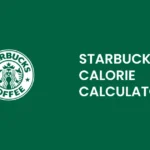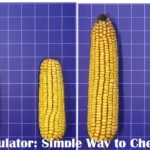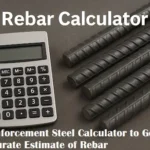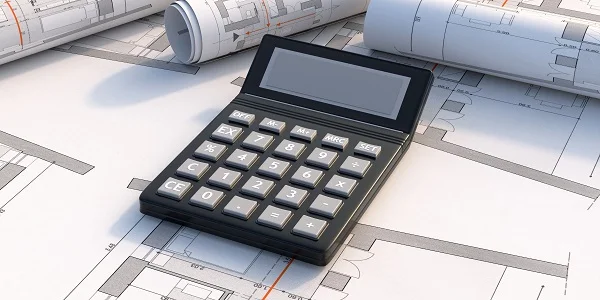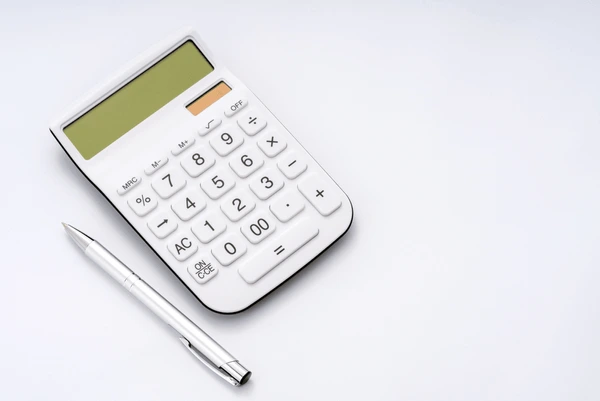Concrete Driveway Calculator: Estimate with Confidence
Thinking of a new driveway is thrilling and somewhat frightening. The most common question that most homeowners ask is the cost involved. A concrete driveway calculator will transform your own measurements into explicit figures of the volume of concrete, materials and an approximate price. This guide outlines the functioning of a concrete driveway calculator, the factors of inputs that are important, the primary cost drivers and how to use online tools in order to arrive at a practical budget.
Why use a concrete driveway calculator
Concrete driveway calculators are necessary to get you out of the guesswork and to the plan. Just enter your driveway length, width, slab thickness, and the type of finish and the calculator will then compute the numbers into cubic yards of concrete, small mix bag count, and total materials. Most of the calculators will also permit you to key in local concrete cost per cubic yard and local labor costs in order to ensure that the final estimate suits your location. The first thing you need to do is a calculator. Either you are going to DIY, or you have to hire a contractor.
Prices of the concrete driveways can differ greatly depending on the finish and location. The industry averages in recent times indicate that plain concrete may vary between eight to eighteen dollars per square foot as compared to decorative or stamped finishes which can be expensive. Compare it to that range to see if a calculator estimate is realistic in your area. The concrete driveway calculator will require important inputs to include:
- Length and width. Measure the driving area in feet and multiply to get square feet.
- Slab thickness. Four inches is common for passenger cars. Use six inches or more for heavy trucks.
- Finish type. Plain broom finish costs less. Stamped, stained, or exposed aggregate adds labor and materials.
- Edge and reinforcement choices. Adding control joints, rebar or wire mesh, and edging affects material and labor.
- Site prep. Removal of old pavement, grading, and subbase rock is often the largest hidden cost. A good calculator will let you add excavation and base material.
- Local prices. If the tool allows, enter the current local concrete price per cubic yard and local labor rate for more accurate results.
How the math works
A properly installed and maintained concrete driveway can last 20 to 50 years, depending on construction quality, slab thickness, reinforcement, climate, and maintenance. The calculator of length multiplied by the width/thickness gives cubic feet and then cubic feet is changed to cubic yards. The cubic yard is used to sell the majority of the concrete, and thus that conversion is important. For thin overlays or small DIY pours, some calculators will give bag counts for ready mix. The tool then multiplies volume by a concrete price and adds labor and extras to show a total. This simple math is why accurate measurements and thickness choices matter so much. Main cost drivers to watch for are:
- Size and thickness. A bigger area and a thicker slab equals more concrete and a higher cost per job.
- Site prep and removal. When there is a need to remove a driveway or regrade the ground, price may skyrocket.
- Reinforcement. Rebar and wire mesh add material and labor and inhibit cracking and increase life.
- Drainage and base. Correct base rock and drainage will lessen long time damage of water and freeze thaw cycles.
- Finish. Decorative finishes like stamping, coloring or exposed aggregate use more labor and materials and increase the price per square foot.
- Labor rates and permits. Local contractor rates and permit fees vary by place and will change your estimate.
Why a concrete driveway cost calculator matters
Seeing material and labor broken down helps you decide where to spend money. For example, you may choose plain concrete for most of the driveway but add a stamped border for curb appeal. Running multiple scenarios in a concrete driveway cost calculator lets you compare plain versus decorative finishes and DIY versus contractor options. For a quick comparison try TogCalculator to toggle thickness and finish and see how the total changes.
DIY versus hiring a pro
An actual driveway calculator will estimate the costs of material only to know the difference between a DIY and a professional installation. DIY will help to save labor, but it needs skill, time, equipment, and good curing practices. Ornamental painting, as well as the driveways, is normally best left to the professional contractors. To be on the safe side, always get a comparison of your calculator totals to two or three local contractor estimates before you spend.
Basic illustration to show numbers
To use a two car driveway, 20 feet x 24 feet = 480 square feet. This will require approximately 480 × (4/12) = 160 cubic feet or approximately 6 cubic yards of concrete, four inches thick. Assuming that local concrete will cost twenty-five dollars per cubic foot equivalent, this would amount to material cost before delivery, reinforcement, base and labor. With a concrete driveway cost calculator, it is easy to test various thicknesses and finishes and watch the results.
Tips to get more accurate calculator results
Measure carefully and include the apron and approach areas. Enter local concrete price per cubic yard if the tool accepts it. Add a contingency of 10 to 15 percent for waste, overage, and unexpected site work. If the project requires heavy equipment access or special permits add those costs. Finally, save your calculator scenarios and share them with contractors to get closer to contract bids.
When stamping or coloring raises the price
Decorative finishes require extra steps, additives and more finishing time. If you plan to use stamped concrete, use a stamped concrete cost option in the calculator or add the premium manually. Comparing stamped and plain finishes in a driveway calculator concreter scenario helps you decide what boost to pay for looks versus budget.
Closing advice and next steps
Start with an accurate cost estimator to set expectations. Use accurate measurements, choose a realistic slab thickness and enter local prices if possible. Run several scenarios to compare plain versus decorative finishes and DIY versus pro installation. To quickly and easily test a variety of scenarios, TogCalculator will offer a fast and user-friendly alternative to obtain two or three contractor quotes based on the results. A budgetary planning process using a calculator will make sure that you are not caught up by unexpected expenses.
FAQs
What is the price of a concrete driveway?
The prices are diverse depending on the locality and finish. A typical concrete work should cost about eight to eighteen dollars per square foot. Just decorative choices bring that higher. Compare it to the results of your calculator. Home Advisor
What is the amount of the driveway concrete required?
Length x width x thickness = cubic feet, divided by twenty seven = cubic yards. Most online calculators of concrete driveways do this automatically.
How thick should a driveway slab be?
Four inches is normal in the case of passenger cars. Select 6 inches when carrying heavy loads or when you are likely to have the trucks. You should be able to input this value and alter it with your calculator to see the variation in the volume and cost.
Can I pour my own driveway?
Simple slabs and small driveways can be poured by professional DIYers. Driveways that are large or ornamental usually require professionals because of the formwork, finishing and curing. Compare estimates on DIY materials on your calculator and contractor estimates.
What is the life of a concrete driveway?
Through sound base, reinforcement and maintenance, a concrete driveway can be decades long. Proper drainage and periodical sealing prolongs life and saves on expensive repairs.
Alex Morgan is a home improvement enthusiast from the U.S. who loves simplifying complex calculations for builders and DIYers. At TogCalculator.com, Alex shares easy-to-use guides and accurate calculator tools that help homeowners plan smarter projects. His goal is to make construction math simple, reliable, and stress-free for everyone.



